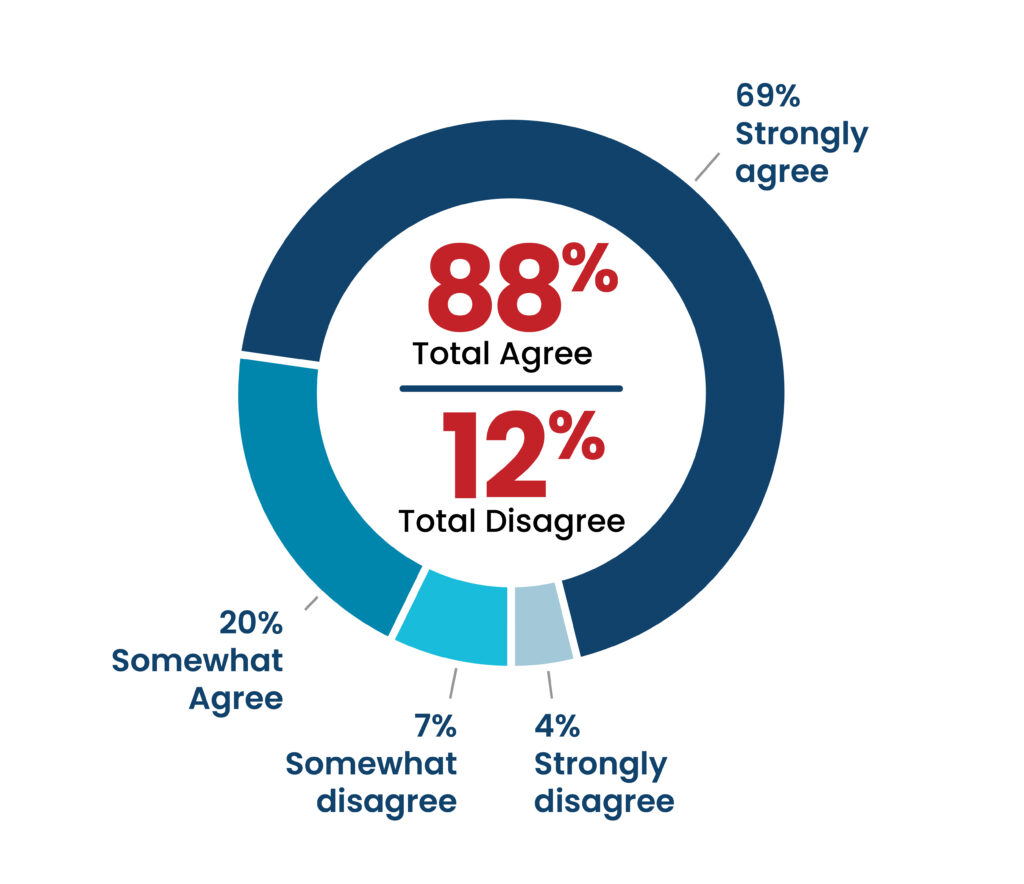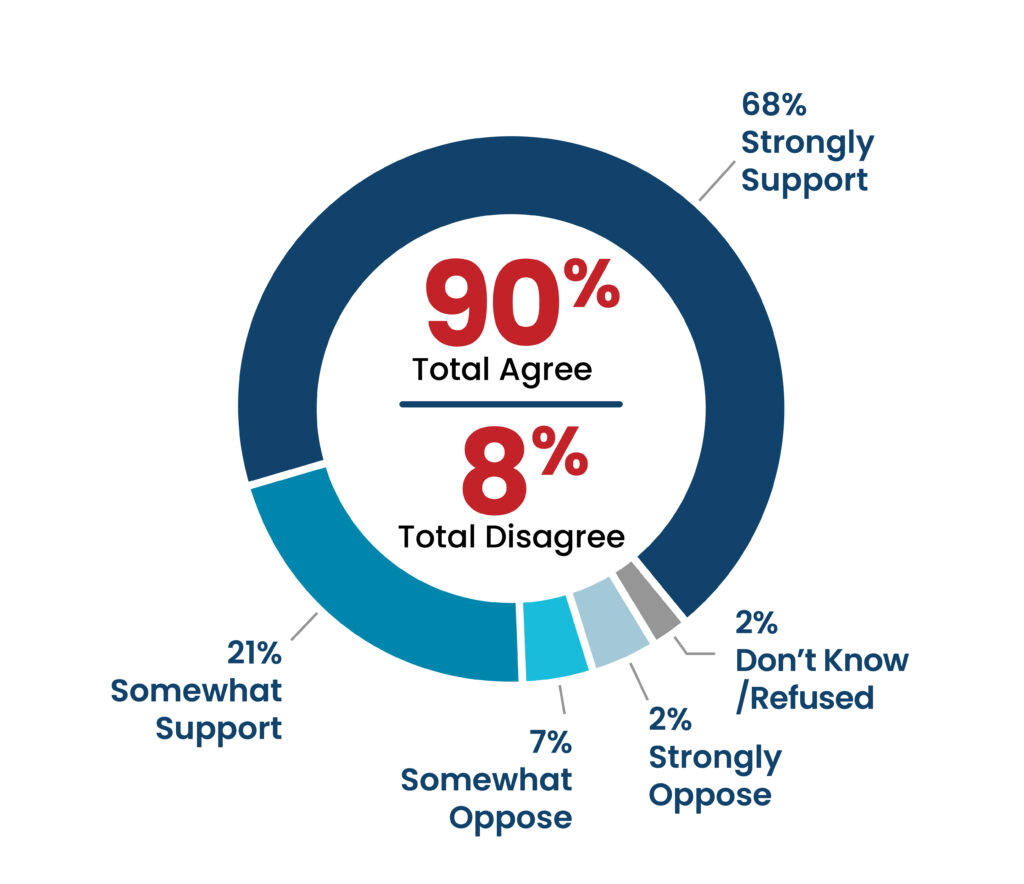About the Poll
Since 2017, TQEE has regularly commissioned Public Opinion Strategies to survey Tennessee voters to gauge support for policy proposals to improve early education outcomes.
The December 2022 poll results highlight voter concern about student performance in reading and math, while also showing Republicans and Democrats are united in their support for prioritizing investments in early care and education to mitigate learning loss, accelerate academic achievement, and better prepare children for success in life.
The findings are from 600 registered Tennessee voters and cut consistently across the state’s political, demographic and geographic lines. The poll was conducted between Nov. 29 and Dec. 4, 2022, with a margin of error of +/- 4 percentage points.
Five Things You Need to Know
1. Nearly every Tennessean recognizes the critical connection of early education to future academic and life success.
Eighty-eight percent (88%) of voters agree with the statement, “Early education, from birth to 3rd grade, provides the building blocks of all future learning.” In today’s polarized political world, it is rare to find a consensus across the partisan divide, still 86% of Republicans and 95% of Democrats agree with the statement above.
But the public education system in Tennessee continues to receive poor reviews from the state’s voters. For the fifth straight poll, a majority (56%) of voters see the state’s public education system as being on the wrong track. The negative view on the direction of the public education system cuts across every demographic, political and geographic subgroup in the poll.
In addition, 64% of Tennesseans believe the state’s public education system is NOT preparing children for future life. Majorities of voters across all subgroups share this pessimistic outlook.


2. Voters want more Pre-K. A lot more.
Expanding the state’s voluntary Pre-K program is another policy receiving wide bi-partisan support across Tennessee for the fifth straight poll. Fully, 91 percent of Tennesseans believe the program should be available to all Tennessee 4-year-olds.
Additionally, 86 percent of voters – including 86 percent of Republicans and 95 percent of Democrats – support increasing state funding for the voluntary Pre-K program to ensure slots for all disadvantaged children.
And, 90 percent of Tennessee voters support increasing state funding for the voluntary Pre-K program to allow every 4-year-old the option to attend. Large majorities of every subgroup endorse Pre-K expansion. Voters find policymakers who support Pre-K expansion very appealing.
3. Republicans and Democrats alike overwhelmingly endorse initiatives to strengthen child care programs and expand access to working families.
Voters are nearly unanimous (90%) in their belief that child care has a major impact on a child’s readiness to be a good learner when they enter kindergarten, and 82 percent think it has a major impact on children’s long-term well-being and future job success. Tennesseans overwhelmingly support a child care policy agenda:
- Eighty-seven percent favor expanded child care assistance for low and middle-income families, so that parents can afford to work.
- Eighty-six percent favor increased state payments for subsidized child care so providers can afford to hire well-qualified teachers.
- Eighty-nine percent favor providing financial incentives to employers who offer child care benefits.
4. Increasing the mental health workforce draws support from a bi-partisan majority.
There is a current shortage of mental health professionals to meet the needs of children and adults.
Eighty-five percent of voters – including 82 percent of Republicans and 97 percent of Democrats – support the state making investments to increase the mental health workforce.
5. Strong majorities of Tennessee voters support policy ideas to help foster and adoptive families deal with health care, childcare and Pre-K.
The following policy ideas are supported by wide majorities of both Republicans and Democrats:
- Automatically enrolling uninsured foster/adoptive families in the TennCare program (82%)
- Offering financial support to foster/adoptive families pay for child care (83%)
- Making state-funded Pre-K available (88%)
The Time To Act Is Now
Quality early care and education birth through third grade is not just important, it’s urgent. And our survey results reflect that Tennessee voters agree. The time is now to advance smart policies and practices that close achievement and opportunity gaps, and support success of young children who will ultimately shape our state’s future. Join our coalition today and lend your voice to the cause. Together, we can make a difference.

